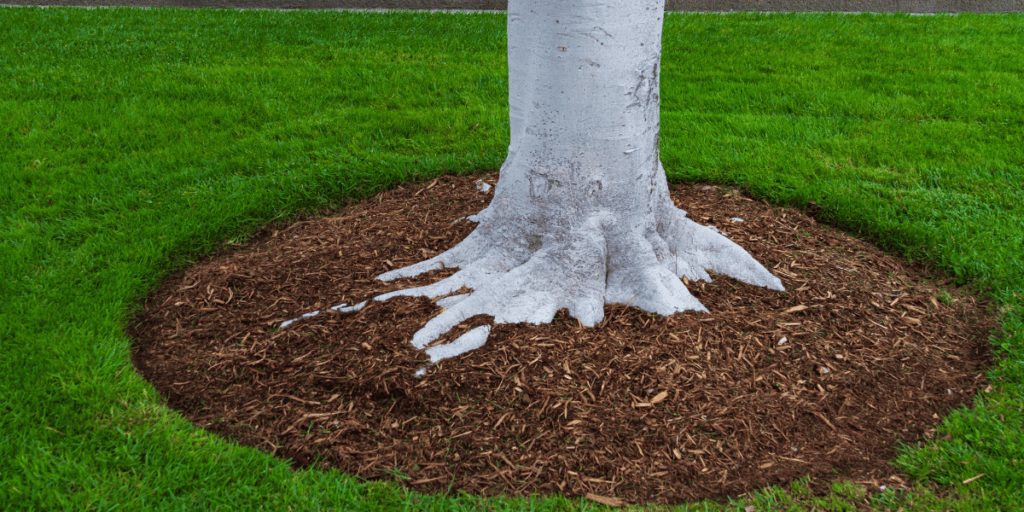Table of Contents
Mulching Matters: Revolutionizing Soil Health for Optimal Tree Growth
What are the potential benefits of mulching for improving soil health and tree growth?
This article aims to explore the various advantages that mulching can provide in terms of the following:
• Conserving soil moisture
• Suppressing weed growth
• Regulating soil temperature
• Enhancing nutrient availability
• Promoting overall tree health and growth
By examining existing research and evidence, this article provides a comprehensive overview of the positive impacts that mulching can have on both soil quality and the development of trees.
Conserving Soil Moisture
Conserving soil moisture is a crucial benefit of mulching, as it helps to reduce evaporation and maintain adequate water levels for plant growth. Water conservation is vital for sustainable agriculture and maintaining healthy ecosystems.
Mulching is vital in this aspect by serving as a protective layer on the soil surface, preventing direct exposure to sunlight and wind. This layer acts as a barrier that slows evaporation, allowing the soil to retain more moisture.
Additionally, mulch minimizes water runoff by improving infiltration rates and reducing soil erosion. It also helps to regulate soil temperature, keeping it cooler during hot weather and reducing the risk of water loss due to excessive heat.
Overall, mulching contributes significantly to moisture retention in the soil, promoting better plant health and efficient use of water resources.
Suppressing Weed Growth
Suppressing weed growth is a significant advantage of mulching in promoting plant health and reducing resource competition.
Organic mulches, such as wood chips, straw, or compost, provide a physical barrier that prevents weed seeds from germinating and emerging. This helps to maintain the desired plant population while suppressing unwanted weeds.
Additionally, organic mulches can release natural compounds that inhibit weed growth through allelopathy. These compounds interfere with the germination and growth of weed seeds by affecting their root development or nutrient uptake.
Furthermore, organic mulches improve soil structure and fertility, creating an environment more favorable for desired plants than weeds.
Overall, using organic mulch as a weed control measure can improve plant health and reduce reliance on chemical herbicides.

Regulating Soil Temperature
Regulating soil temperature is an essential factor to consider when using organic mulches, as they can provide insulation and reduce fluctuations in temperature that may negatively impact plant growth.
Mulching helps to increase microbial activity in the soil, which has numerous benefits for plant health and nutrient cycling. Microorganisms thrive in a stable environment, and by regulating soil temperature, mulches create favorable conditions for their growth and activity.
This increased microbial activity enhances nutrient availability and decomposition of organic matter, resulting in improved soil structure and fertility.
Additionally, mulching plays a crucial role in preventing soil erosion by acting as a protective layer that reduces the impact of raindrops on the soil surface. Mulches help retain moisture and to avoid nutrient loss from leaching by minimizing erosion, ultimately promoting healthier plants with enhanced growth potential.
Enhancing Nutrient Availability
Enhancing nutrient availability in the soil is a critical aspect of agricultural practices, as it directly impacts plants’ overall productivity and health. Increasing fertility can be achieved through various methods, such as adding organic matter, covering crops, and applying fertilizers.
Organic matter additions improve soil structure and provide essential nutrients for plant growth.
Cover crops help to prevent nutrient leaching by capturing excess nutrients from rainfall or irrigation water. Additionally, they contribute to increased nitrogen fixation in the soil through their symbiotic relationship with nitrogen-fixing bacteria.
Applying fertilizers tailored to specific nutrient requirements can also enhance absorption by plants.
Monitoring soil pH levels is crucial since it affects nutrient solubility and availability for plant uptake.
Implementing these strategies will ensure that plants can access sufficient nutrients, improving crop yields and overall agricultural sustainability.
Promoting Tree Health and Growth
Understanding the factors that contribute to promoting tree health and growth is essential for developing effective strategies in arboriculture. Several key factors are crucial in improving root development and preventing erosion, ultimately enhancing overall tree health and growth.
Factors contributing to improved root development: – Soil conditions: Adequate moisture levels, proper drainage, and sufficient oxygen availability are vital for healthy root development. – Nutrient availability: A balanced supply of essential nutrients promotes robust root growth and overall tree vigor.
Factors preventing erosion: – Mulching: Applying organic mulch around trees helps retain soil moisture, regulate temperature fluctuations, reduce weed competition, and avoid corrosion. – Planting techniques: Proper planting methods such as creating berms or terraces can help hold soil in place while encouraging water infiltration.
Frequently Asked Questions
What are some common types of mulch used for conserving soil moisture?
Common types of mulch used for conserving soil moisture include organic materials such as straw, wood chips, and compost. These mulching techniques help to reduce evaporation, retain water in the soil, and promote healthy plant growth.
How can mulching help suppress weed growth?
Mulching benefits include weed suppression. Mulch acts as a physical barrier, preventing sunlight from reaching weed seeds and inhibiting their germination. It also helps reduce competition for resources, such as water and nutrients, further suppressing weed growth.
Are there any specific mulching techniques that can regulate soil temperature effectively?
Mulching techniques can effectively regulate soil temperature by reducing water evaporation. Mulch acts as an insulating layer, preventing extreme temperature fluctuations and maintaining a more stable environment for plant roots.
Can mulching enhance the availability of specific nutrients in the soil?
Mulching can enhance plant nutrition by optimizing nutrient availability in the soil. Research suggests that mulch aids in retaining moisture, reducing erosion, and promoting the breakdown of organic matter, which releases essential nutrients for plant uptake.
Are there any factors to consider when choosing the right mulch for promoting tree health and growth?
Factors to consider when choosing the right mulch for promoting tree health and growth include mulch types, such as organic or inorganic materials. Consideration of moisture retention, nutrient availability, and weed suppression is also essential.